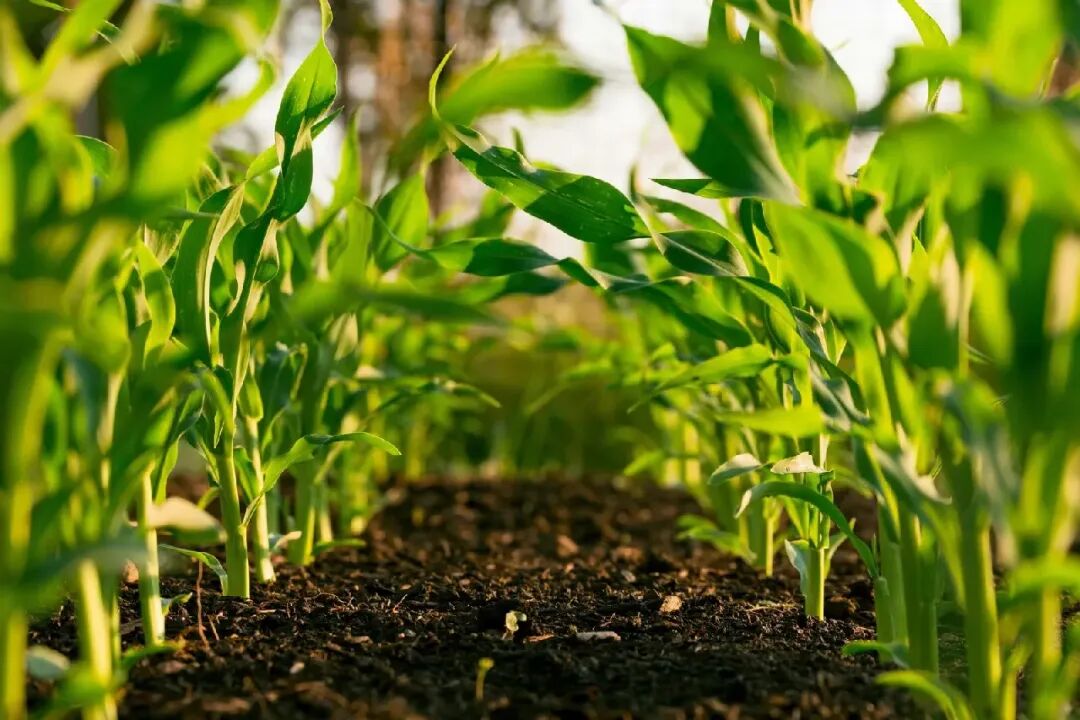Home/News/How to Provide Financial Support for the Transition to Climate-Smart Agriculture/
How to Provide Financial Support for the Transition to Climate-Smart Agriculture
2024-05-24
:Unsplash.
Greg Goodwin
John Stackhouse
As we continue striving toward our goal of environmental improvement, people have already discovered numerous benefits of enhancing agricultural soil health: boosting biodiversity, improving water retention and water quality, mitigating climate change, and increasing crops' resilience to stress—all of which can be achieved by shifting agricultural practices toward the regenerative agriculture paradigm.However, as with many other systemic changes, farmers often face financing challenges when transitioning to regenerative agriculture. While farmers may also consider environmental concerns, at the end of the day, this shift remains a business decision for each farmer. Moving from long-standing conventional farming practices to regenerative agriculture requires significant investments of time, labor, and capital.According to the recently released report "The '100 Million Farmers': Pioneering Innovative Financing Models to Drive Sustainable Transformation," jointly published by the World Economic Forum and Bain & Company, the primary barrier to farmers' transition often lies in short-term economic risks. In the initial years of adopting new technologies, farmers may face higher costs due to changes in both technology and inputs, along with potential yield losses in the short term. However, over time, as soil health gradually improves, farmers typically observe enhanced crop resilience—and in some cases, even increased yields. These benefits are directly linked to improvements in the soil's organic carbon content, biodiversity, water retention, water quality, and fertility levels.Many farmers cannot afford the initial costs and risks of the transition without support. So the question is, how can we help them?Dave McKay, President and CEO of the Royal Bank of Canada, explained: "For decades, farmers have been actively adopting climate-smart agricultural practices and food-production methods—and now is precisely the time for business leaders and policymakers to fully support them. For instance, we should champion coordinated mechanisms that help the agri-food sector reduce emissions, while also exploring innovative financial tools to incentivize farmers for their efforts in safeguarding agricultural ecosystems, rather than focusing solely on increasing agricultural output itself."The aforementioned report was presented at the 2024 World Economic Forum Annual Meeting held in Davos, Switzerland, and represents a key thought leadership outcome from the event. Authored through a collaborative effort involving financial institutions, agri-food value chain companies, and agricultural organizations, the report introduces a financing and collaboration model designed to support farmers—benefiting all stakeholders involved, including the farmers themselves.When farmers face cost challenges right at the start of their transition to regenerative agriculture, they need robust safeguards to feel sufficiently secure. To tackle these initial financial hurdles, farmers require access to financial support options such as advance payments or guarantees, along with preferential loan terms or insurance during the critical early years of the transition—measures that help mitigate risks.
Moreover, financial support isn’t the only tool available to assist farmers. We must build a more comprehensive and integrated "farmer service system," offering not only technical assistance but also services like monitoring, reporting, and verification (MRV). Ultimately, our support for farmers must remain flexible—tailored to their unique needs rather than applying a one-size-fits-all approach.Adopting an innovative funding mechanismMost of the funding should come from the revenue generated by monetizing ecosystem services produced through regenerative agriculture. To facilitate the trading of credits or ownership rights, we need to establish an anchor organization that serves as a "coordination mechanism," connecting farmers with buyers who have demand for these ecosystem outcomes. To ensure this transformative shift unfolds smoothly and that farmers receive support precisely when they need it most, we’ll require additional investment from both public and private capital sources. Investors participating in this "financing stack" should act as catalysts, offering favorable and long-term commercial investment terms—while also reaping returns from the monetization of ecosystem services.Key stakeholders in the funding and delivery processThe successful implementation of this innovative model requires collaboration among all stakeholders, including financial service providers, policymakers, participants in the agricultural value chain, technical assistance providers, and regulators. The coordination mechanism mentioned earlier can help facilitate cooperation among these groups.In addition to facilitating the monetization of ecosystem services between farmers and buyers, this organization can also integrate farmer service systems, help farmers restructure their cash flows, mitigate their transition risks, and even build a financing stack—while simultaneously managing risks for farmers and their partners. As such, the organization must possess advanced financial capabilities to serve as a pivotal player in this space. Several existing innovative initiatives have already demonstrated relevance to this groundbreaking model, with certain types of stakeholders playing crucial coordination roles: farmer associations and their affiliated organizations, financial service providers, and agritech companies.Make the transformation a realityTo provide farmers with financial and service support, it is essential to foster collaboration among influential stakeholders. By pooling resources, aligning institutional efforts, and empowering farmers collectively, we can share the risks of transformation and minimize the impact on any single entity during the transition process.The transformation of food systems remains an urgent issue in 2024, and next year’s 30th United Nations Climate Change Conference will also be held in Brazil, a global agricultural powerhouse. For most farmers, this transition cannot happen without support and assistance—making it more critical than ever to establish collaborative models addressing financing, training, and verification challenges. This groundbreaking approach reflects a growing trend toward clearer investment in food systems, signaling that we’re actively pivoting to prioritize the health of our planet, people, and plants above all else.Holly Sullivan, Head of the Global Future Council on Regenerative and Resilient Systems at the World Economic Forum, also contributed to this article.The above content represents the author's personal views only.This article is translated from the World Economic Forum's Agenda blog; the Chinese version is for reference purposes only.Feel free to share this in your WeChat Moments—please leave a comment below if you’d like to republish.
Translated by: Sun Qian | Edited by: Wang Can
The World Economic Forum is an independent and neutral platform dedicated to bringing together diverse perspectives to discuss critical global, regional, and industry-specific issues.
Follow us on Weibo, WeChat Video Accounts, Douyin, and Xiaohongshu!
"World Economic Forum"





